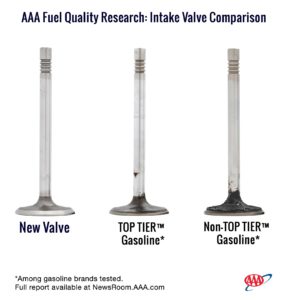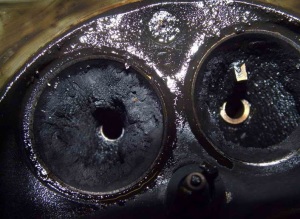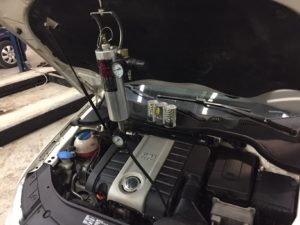We have been having a lot of people asking us, “Steve, do I really have to put premium gas in my Volkswagen?” (or Audi, or BMW, or anything German or has a turbo, or is direct injected).
“It costs too much”. This is the most common complaint of having to put premium fuel in your vehicle. If you drive a premium vehicle, or a sporty vehicle (GTI, Golf R, WRX, Focus RS etc…), you paid a higher price for a better vehicle. Performance, build quality, and more are all a by-product of owning a premium product. There are many people who can afford such a vehicle, but cannot afford (or choose to cheap out on) the regular upkeep of such a vehicle.
The big one is fuel. OK, it costs more than regular fuel. But consider this: at the time this was posted, according to GasBuddy.com, the current price of regular gas is 120.9¢ / l. The current price for premium fuel is 139.9¢ / l. It looks much higher! Let’s factor in the average vehicle has a fuel tank capacity of around 55 liters (Usually 50 + a 5 liter reserve), so to fill your vehicle with regular fuel you would be looking at $66.49. For premium, you would only be looking at $76.94, a difference of only $10.45. It’s not that bad.
Especially when you consider the good effects premium fuel has on your vehicle. Premium fuel has a higher octane rating which causes your vehicle to run more efficiently, and cleaner. Not only that, but premium fuels have a higher detergent rating than regular fuels.
A study by AAA compared valves from a vehicle running regular (or non-top tier) to one running premium (top tier). The results according to AAA were “surprising”. The vehicle running premium fuel saw on average, 19x less carbon buildup on the valves then that of the vehicle running regular fuel. The photo can be seen below.

What this means for your vehicle:
When your vehicle is running more efficient, it runs cleaner. Modern vehicles are all switching to direct injection systems. Pretty well all manufacturers are doing it, Ford has recently done it with the Ecoboost motors, Mitsubishi was one of the first mainstream vehicles trademarking GDI, Volkswagen has been doing it for many years, Subaru has recently switched to it, and more. The reason for going direct injection is simple, more power, less fuel consumption.
That’s why now you will see a big Ford Escape with a small 1.6l turbo. You have the power, and the fuel efficiency to move around an SUV. This is great. The only drawback of direct injection is you don’t have fuel cleaning the ports because fuel is being injected directly into the combustion chamber.
Carbon begins to build up in the valves and can cause driveability issues. With a higher quality fuel, and more detergents in the fuel it reduces this buildup.
If carbon deposits get out of hand, the vehicle will start to run poorly.
We do have a chemical-based removal which proves extremely effective, but if the deposits are so bad, the intake manifold has to come off and be cleaned by hand. Which can be quite expensive.


So is it worth putting Premium fuel in your vehicle?
Refer to the manufacturer. Pop open your fuel tank door and see what they recommend. If it says “Requires Premium Fuel” (which most turbo, or direct injection vehicles do), then you must use Premium. If you don’t, you will experience pinging or pre-detonation occurring, which could prove detrimental to your engine.
If your vehicle isn’t direct injection you can get away with using regular fuel. Sadly, most manufacturers recommend regular fuel and oils in their turbocharged, direct injection vehicles. This is where we see a lot of issues.
These issues range from carbon buildup, to random driveability issues, to engine failures.
While the cost of Synthetic oils and Premium fuels may be a little bit more, it more than saves you headaches in the end. Save a penny, spend a dollar.
That’s all for today!
Thanks for reading, and be sure to share this blog post.